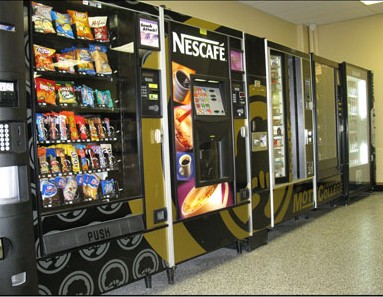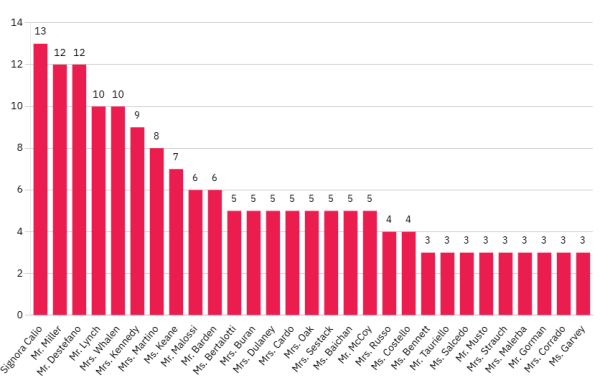Fine and Dine: The BHS Food Audit

Do students know enough to make the right food choices for themselves?
OP-ED
This past January, Bethpage students were told they were not allowed to have bake sales or sell candy bars in order to comply with government “Food Audit” with regards to nutrition regulation. BHS administrators expected inspectors to descend upon the school some time during the winter months, but no one knew exactly when. Worst of all, if even one violation were found, the school could receive a fine of thousands of dollars not allotted in our budget.
In reality, the “food audit” itself is almost laughable, because half of the food that has been deemed “okay” by the government to sell in school isn’t actually all that nutritious. Any food that the government allows in our school simply has met all the requirements of the “Healthy Foods in School Act” encouraged by Michelle Obama and passed by Congress.
A Fruit Roll-Up is okay to sell because it has the slightest trace of actual fruit in it, but chocolate is technically banned. However, according to caloriecount.com, one berry-flavored Fruit Roll-Up receives a grade of C- for nutrition, and a Milk Chocolate Hershey Bar gets a D. The former is only a shade better than the latter, a notoriously sugary snack.
Additionally, the New York State Department of Education only sends two individuals to assure that our cafeteria program is “up to code,” according to Principal Spence. Do they expect the opinions of two people inspecting the regulations of our school’s food on a random day to be indicative of a full year?
Furthermore, fourteen-through-seventeen-year-olds should be able to decide what we want to put in our bodies, but that’s a whole other issue with which even our principal agrees.
“With high school students, we figure by this point you’re educated enough to make the right decisions about your diet,” Principal Spence said. “We would like to give you a little more freedom now that you’re older, and the food regulations make that hard sometimes.”
However, we can’t blame the auditors for this calorie corruption—so whom can we blame? Well, the only people who truly have control over the situation: Michelle Obama and Congress.
Now, I cannot question if Michelle Obama follows the same healthy eating patterns as she so arduously encourages, because she clearly exercises every chance she gets and eats kale salads for dinner. And who could forget that her favorite fall vegetable is a sweet potato?
But are they practicing what they preach in Congress?
Upon looking at the Senate cafeteria menu, I discovered that 95% of their food could be considered not just “unhealthy,” but downright artery-clogging. Some of the featured foods: two chili-cheese hot dogs, Italian meat lover’s pizza, and ham-and-cheese stromboli. All these options are loaded with trans-fat, carbs, and sodium.
I understand that the people who order here are adults and should be able to decide for themselves what to eat—but aren’t we all on the verge of adulthood as well?
Congress, you expect us to chose the perfect college for ourselves based on finances, value of education, campus life, and other “mature” factors….yet we aren’t allowed to chose between whole wheat or white?
Having kids restrained their whole lives will only cause them to go wild once they’re out of school. After 18 years of being told you can’t eat a cheeseburger, one can only imagine people with “addictive personalities” will want to make up for that. We can’t learn how to make healthy choices if there are no choices.
Let’s not forget the lunacy of charging $1.50 for a single Poptart in the vending machines. Let’s just pretend for a whole month that this is totally fine and dandy. Mr. Spence even admits that he “would rather bring sunflower seeds from home.”
And our principal has good reason to feel this way. Upon my own examination of our school’s vending machines, I discovered that a bags of pretzels, among other snacks, had a “best by….” date of May 2015. While I know that this expiration date was a couple weeks away from when I saw the pretzels, these processed foods usually have a shelf life of about a million years. So, I can only imagine that these pretzels have been sitting around either in the machine or in a box somewhere for a while, yet that won’t be found by food auditors.
We also can’t ignore the fact that the school lunches in the cafeteria are considered chock-full of vitamins. How exactly are “cheese and beef nachos” healthy? Oh—they’re on whole grain tortilla chips. So that’s totally okay with the government, I guess.
Also, why do they spell chicken as “chix” on the cafeteria menu? What is a “Chix Dunker?” What is a “Thai Chix salad?” Is it not real chicken? Should I be concerned that we didn’t get fined by the food inspectors for that spelling alone?
Think about the choices you’ve been given the next time you tear into your chix dunkers, kids.

Stephanie Shamah is a senior at Bethpage High School and a proud member of the Varsity Nap Team. In her spare time, when she isn’t practicing or writing...





